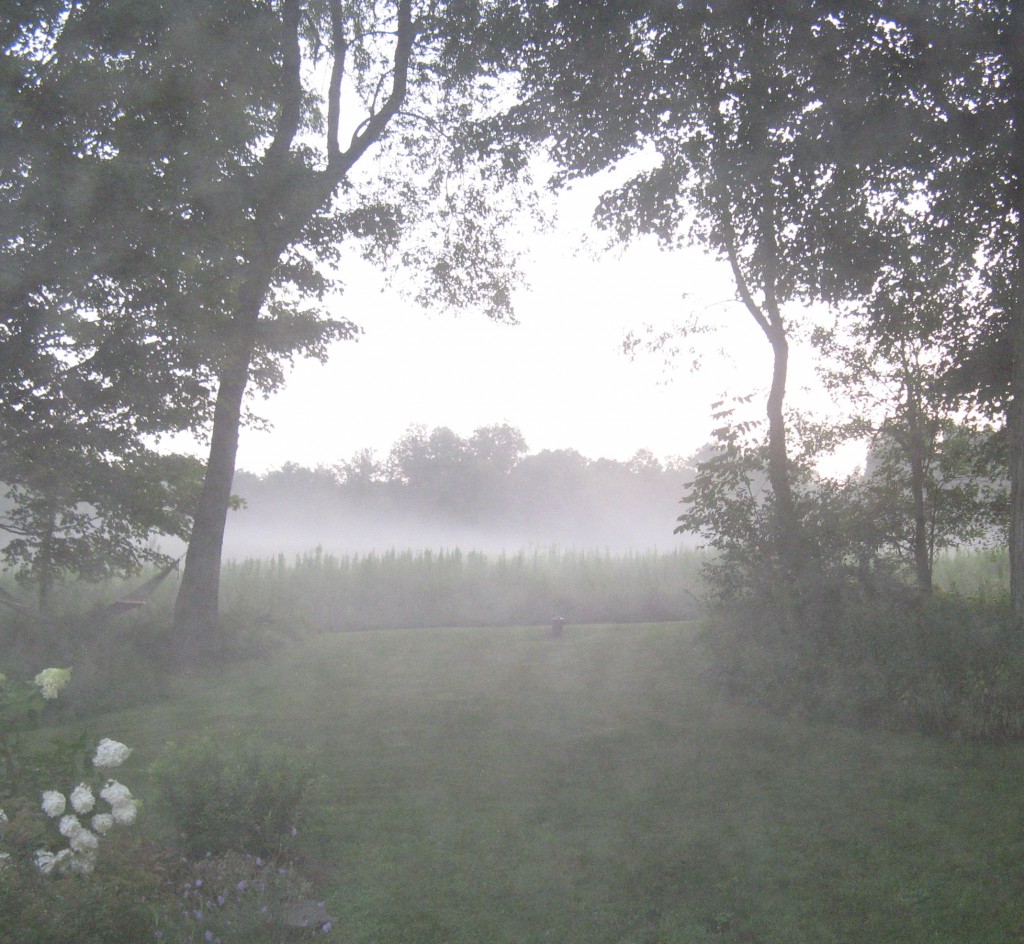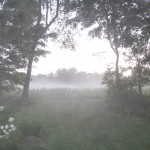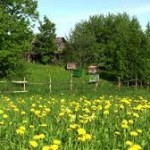 I thought of Deborah Digges this week and her hauntingly beautiful poem ‘Telling the Bees.’ I’ve loved this poem for many years without — as is often the case with poetry — really understanding what it is about. At first read, it seems that the father of a middle daughter has died and that for some reason it’s her job to let the bees know about his passing. But the circumstances mattered far less to me than the music of the language itself: “the honey darkening in the bitter years/the combs like funeral lace or wedding veils/ steeped in oak gall and rainwater/ sequined of rent wings.”
I thought of Deborah Digges this week and her hauntingly beautiful poem ‘Telling the Bees.’ I’ve loved this poem for many years without — as is often the case with poetry — really understanding what it is about. At first read, it seems that the father of a middle daughter has died and that for some reason it’s her job to let the bees know about his passing. But the circumstances mattered far less to me than the music of the language itself: “the honey darkening in the bitter years/the combs like funeral lace or wedding veils/ steeped in oak gall and rainwater/ sequined of rent wings.”
I recently stumbled upon the fact that for centuries it was the custom throughout England and parts of Ireland and Wales for bees to be informed of important events in their beekeepers’ lives — especially a death in the family. If the news was not properly transmitted then it was feared that the bees might stop producing honey or leave the hive. I’m not sure why learning this affected me so deeply. But it was, to use Digges’ words, like “a calling across dreams.” Less a discovery than a recognition of something that I’d already sensed in Digges’ lines. The best poems resonate on many levels.
In an era when word of death is thrust upon us daily over the internet, often with brutal indifference, it’s comforting to remember that there was time when such news was so fraught with significance that even the bees would need to be told. And, perhaps even more remarkable, that they would care.
Telling the Bees Deborah Digges 1950 – 2009 It fell to me to tell the bees, though I had wanted another duty— to be the scribbler at his death, there chart the third day’s quickening. But fate said no, it falls to you to tell the bees, the middle daughter. So it was written at your birth. I wanted to keep the fire, working the constant arranging and shifting of the coals blown flaring, my cheeks flushed red, my bed laid down before the fire, myself anonymous among the strangers there who’d come and go. But destiny said no. It falls to you to tell the bees, it said. I wanted to be the one to wash his linens, boiling the death-soiled sheets, using the waters for my tea. I might have been the one to seal his solitude with mud and thatch and string, the webs he parted every morning, the hounds’ hair combed from brushes, the dust swept into piles with sparrows’ feathers. Who makes the laws that live inside the brick and mortar of a name, selects the seeds, garden or wild, brings forth the foliage grown up around it through drought or blight or blossom, the honey darkening in the bitter years, the combs like funeral lace or wedding veils steeped in oak gall and rainwater, sequined of rent wings. And so arrayed I set out, this once obedient, toward the hives’ domed skeps on evening’s hill, five tombs alight. I thought I heard the thrash and moaning of confinement, beyond the century, a calling across dreams, as if asked to make haste just out of sleep. I knelt and waited. The voice that found me gave the news. Up flew the bees toward his orchards.For more poems by Deborah Digges, please visit: https://www.poets.org/poetsorg/poet/deborah-digges




I love the poem, Liza
Margaret
Thank you, Margaret. It’s a poem that I go back to year after year — and it still remains a mystery to me in many ways.
I enjoy reading your beautifully written blogs along with your introduction to various poets. Moreover, I am impressed enormously by the photos that appear in your blogs especially the most recent one that accompanied ‘Telling the Bees’. What a fascinating story about the bees and the beekeepers’ lives! But what caught my eyes most was the hauntingly mysterious B & W photo which looks like it is taken from your back yard looking out to the woods. Is it also your work? I was so moved by it, and I just have to tell you that you are as wonderful a photographer as you are a writer.
Thank you, Junko. I’m so pleased that you’re enjoying the poems. As to the photographs, I do take most of them. But I believe that Bill took this one — and you’re right, it’s looking up through our woods bordering the field at dusk with fog covering the hill. Digges mentions going to tell the bees in the evening and this seemed to be the perfect image.
Lovely lovely poem and thought. Thank you. Forwarding it to a bee-keeping friend.
Have been absolutely blocked from writing.
Finally a wee little poem came the other night
Amy
Frog
A wet moonless summer night
a big frog drawn to the porch light
or its warmth, stations himself
boldly, on the kitchen step.
my big dog sleeping on his pillow
on the porch, my small dog sniffing about.
Like the young snake a year or so ago,
a storm approaching, who slithered up the steps,
in search of safety and a home
so the frog, protected by the overhanging shadow,
sits at ease, despite the dogs and non-frog smells
in the grace of this beloved house.
What a lovely poem, Amy. I hope more come like this one — landing just as quietly on your doorstep.
So lovely. Like “a calling across dreams,” indeed. I didn’t know this poem, Liza. Thank you so much for introducing me to it. These days, I’m feeling the urge to tell the bees more joyous news, as I bring our granddaughter’s tiny form against my chest: a mystical presence, new and yet out of the ages.
What wonderful news for the bees — and the rest of the world! A newborn is indeed a mystical presence; how lovely that you get to be there during these early precious days.